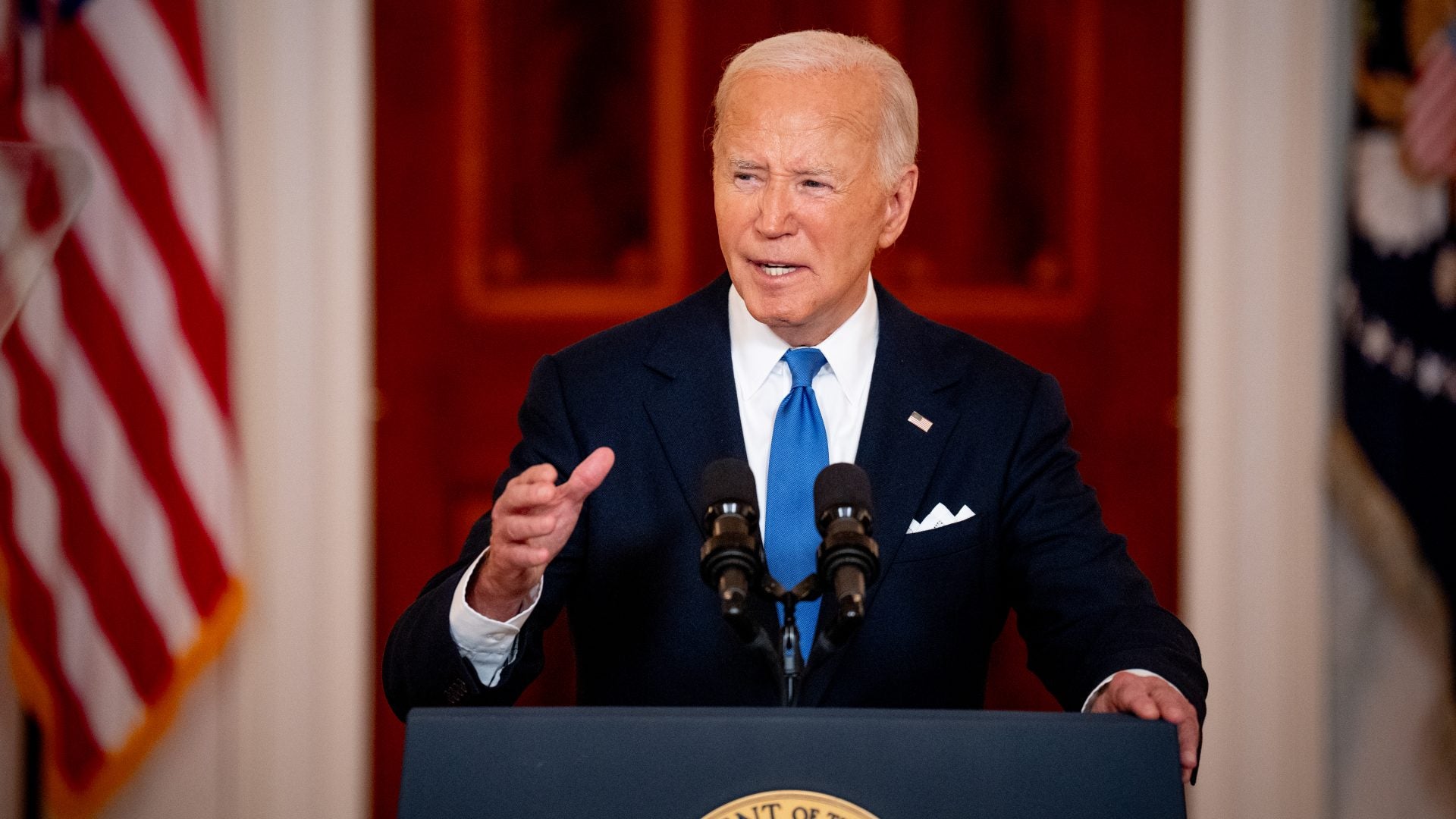
On Monday, President Biden issued a new plan calling for Supreme Court reform. The president proposed establishing term limits and ethics reform for the high court, in addition to a new constitutional amendment to ensure that “no president is above the law.”
This proposal comes after the Supreme Court, which currently has a 6-3 conservative majority, has issued rulings in the past couple of years overturning the right to abortion, ending affirmative action, and other landmark decisions.
President Biden outlined this initiative at the LBJ Presidential Library in Austin, T.X. where he was commemorating the Civil Rights Act’s 60th anniversary. “Extremism is undermining the public confidence in the court’s decisions,” said Biden, continuing, “We can and must prevent abuse of presidential power and restore faith in the Supreme Court.”
“This nation was founded on the principle there are no kings in America,” added Biden. “Each of us are equal before the law. No one is above the law. For all practical purposes, the court’s decision almost certainly means the president can violate their oath, flout our laws, and face no consequences.”
In a statement, Vice President Kamala Harris said, “there is a clear crisis of confidence facing the Supreme Court.”
Biden’s plan has three prongs. One is “a system in which the President would appoint a Justice every two years to spend eighteen years in active service on the Supreme Court. Secondly, Biden proposes that justices serving on the high court be subject to “binding, enforceable conduct and ethics rules that require Justices to disclose gifts, refrain from public political activity, and recuse themselves from cases in which they or their spouses have financial or other conflicts of interest.” Lastly, the No One Is Above the Law Amendment enumerates “that the Constitution does not confer any immunity from federal criminal indictment, trial, conviction, or sentencing by virtue of previously serving as President.”
These calls for reform are far from new. Last October, a bipartisan committee of 11 legal experts, including former U.S. Circuit Judge Diane Wood and U.S. solicitor general Charles Fried wrote a paper entitled The Case For Supreme Court Term Limits. The group recommended an 18-year active term limit for Supreme Court Justices, with “a system of regular appointments…a new justice would be added to the bench every two years.” In addition, the group also proposed “changing the Senate rules to require a vote on nominations of Supreme Court justices within a reasonable time.”
In 2020, after Justice Ruth Bader Ginsburg died, some Democrats commented on expanding the number of justices on the High Court as the GOP rushed to confirm their nominee prior to the presidential election, even though they blocked the confirmation of Merrick Garland just four years earlier citing a “standard that there be no confirmations to the court during an election year.”
Attorney and author of “The Originalism Trap: How Extremists Stole the Constitution and How We the People Can Take It Back,” Madiba K. Dennie outlined how the U.S. is an outlier with respect to the rest of the world when it comes to the Supreme Court, “including how much authority justices wield–and for how long–and how narrowly they view guarantees of equality and social and economic rights.” Bills have been introduced in Congress to increase the number of justices, “establish term limits…establish protections for federal judiciary employees…[and] strengthen ethical requirements.”
While some have hailed these proposals as bold, implementing these policies does not seem especially likely given the current political climate. In order to amend the U.S. Constitution, three-quarters of the states would have to approve of imposing term limits and overturning presidential immunity. Also with regard to ethics, during a 2023 interview, Justice Alito incorrectly posited “no provision in the Constitution gives [Congress] the authority to regulate the Supreme Court — period.” Even though Article III does not provide for this, the Court has historically largely had free reign when it comes to their personal actions.



